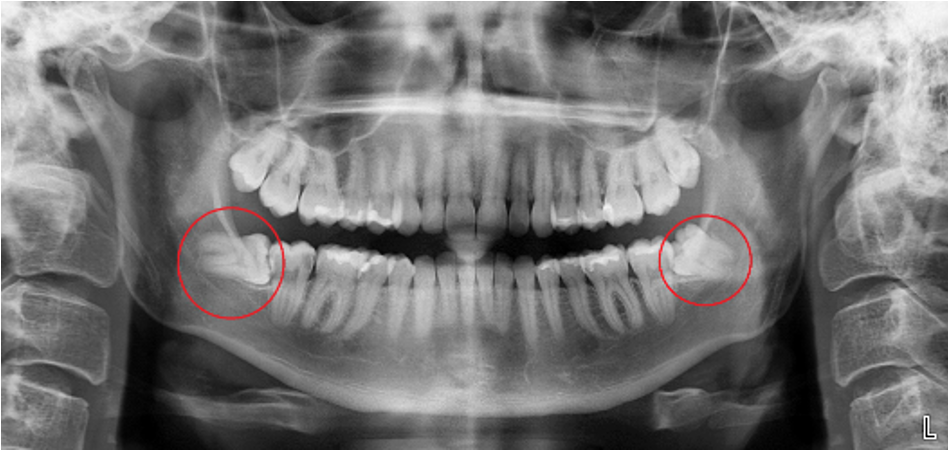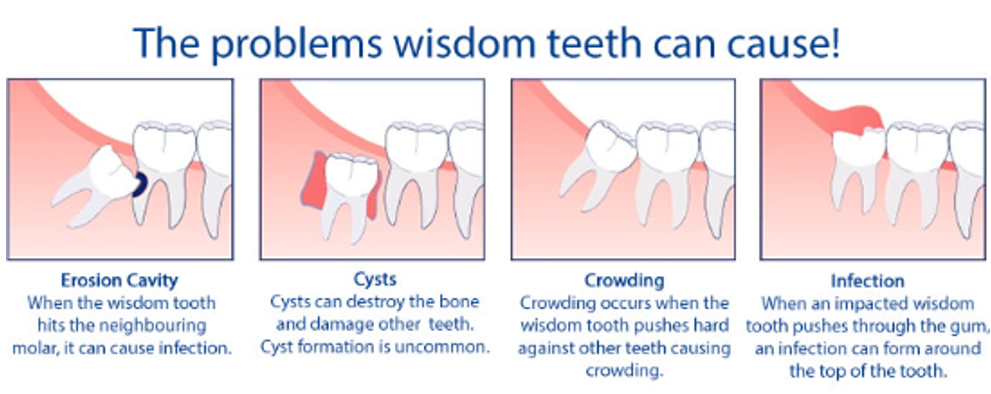Wisdom teeth, also known as third molars, are the last set of molars to erupt into the mouth. This typically happens between 17 and 21 years of age. While some people have no issues with their wisdom teeth, many experience problems that may necessitate their extraction. Here’s some information about wisdom teeth and the extraction process:
Impaction: Wisdom teeth often do not have enough space to properly emerge. When they cannot fully erupt through the gumline, they are referred to as impacted. This can lead to various issues.
Crowding: Wisdom teeth can cause overcrowding in the mouth, leading to misalignment of other teeth.
Infection and Pain: Partially erupted wisdom teeth can create pockets where bacteria can accumulate, leading to infection and pain.
Cysts and Tumors: In some cases, cysts or tumors can form around impacted wisdom teeth.
Extraction Process:
Consultation: Your dentist will typically start with a consultation and X-rays to assess the condition and position of your wisdom teeth.
Local Anesthesia with or without sedation: You will receive local anesthesia to numb the area around the tooth. We also provide a bespoke intravenous sedation service.
Extraction: The dentist will remove the wisdom tooth. This can involve cutting through gum tissue and sometimes even removing a portion of the bone.
Stitches: Stitches may be needed to close the incision.
Recovery: After the procedure, you’ll need time to recover. You may experience swelling, pain, and discomfort, which can be managed with pain medications and following post-operative care instructions.
Diet: You’ll likely need to stick to a soft diet for a few days to allow the surgical site to heal.
Follow-Up: You’ll have follow-up appointments to ensure proper healing.
Complications and Risks:
Infection: Infection can occur at the extraction site. It’s important to follow post-operative care instructions to minimize this risk.
Dry Socket: This painful condition can occur when the blood clot that forms after extraction becomes dislodged or dissolves prematurely.
Nerve Damage: In rare cases, nerves in the jaw may be damaged during the extraction, leading to numbness or tingling in the lower lip or tongue.
Recovery Time: The recovery time varies from person to person, but most people can resume their normal activities within a few days to a week.
Alternatives to Extraction: In some cases, if wisdom teeth are not causing problems and are properly aligned, they may not need to be extracted. Regular dental check-ups can help monitor their condition. It’s important to consult with a dental professional to determine whether wisdom tooth extraction is necessary in your case. They can provide personalized advice based on your specific situation and dental health.




Recent Comments